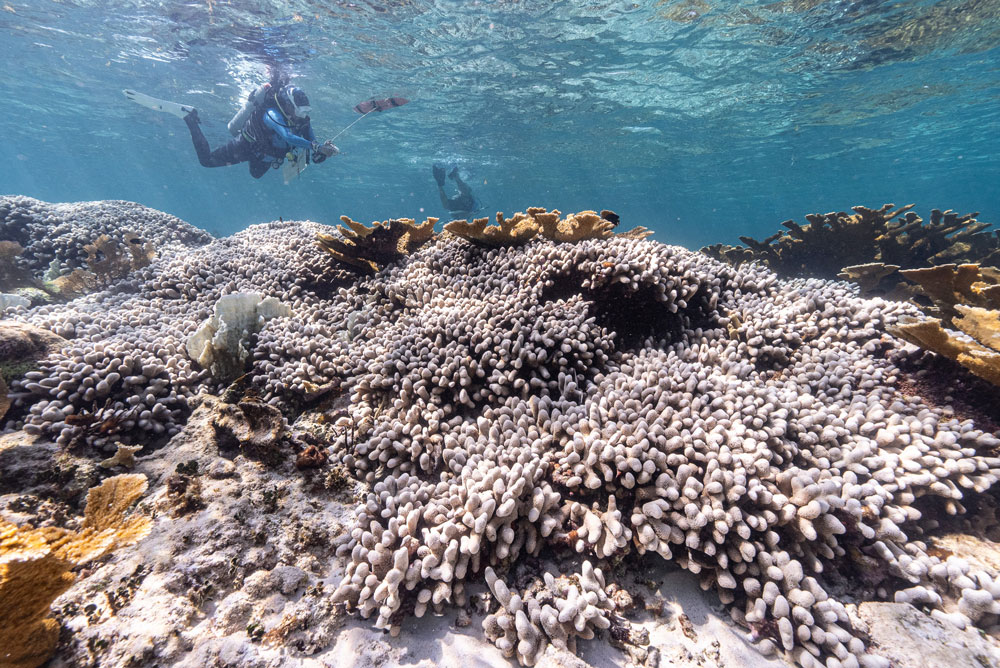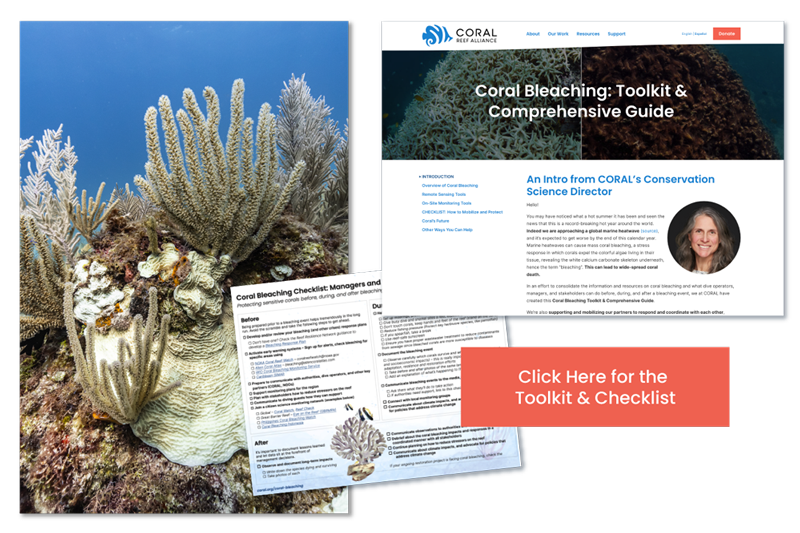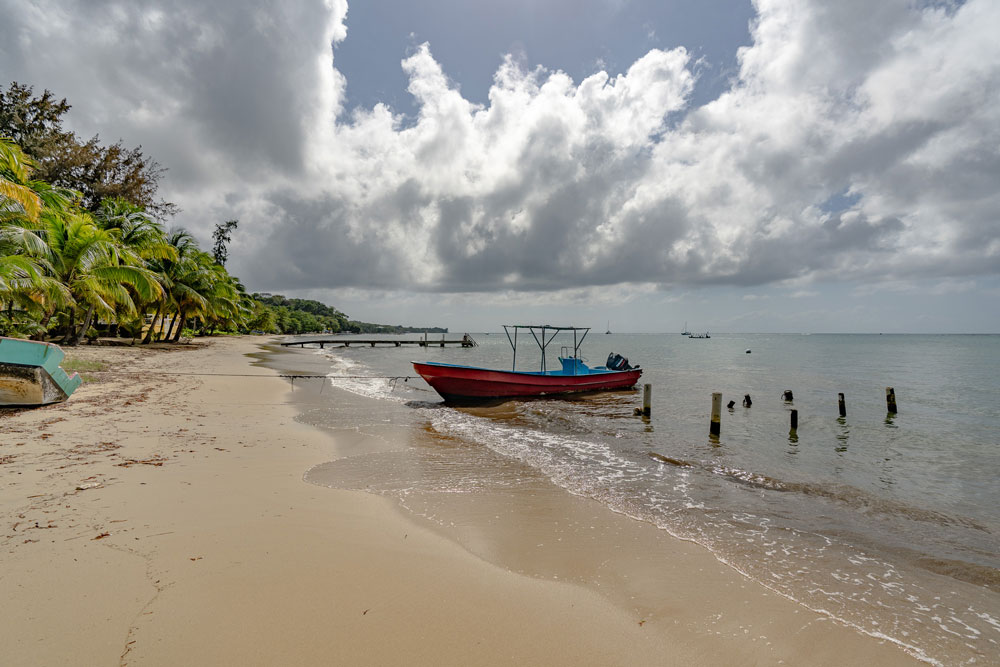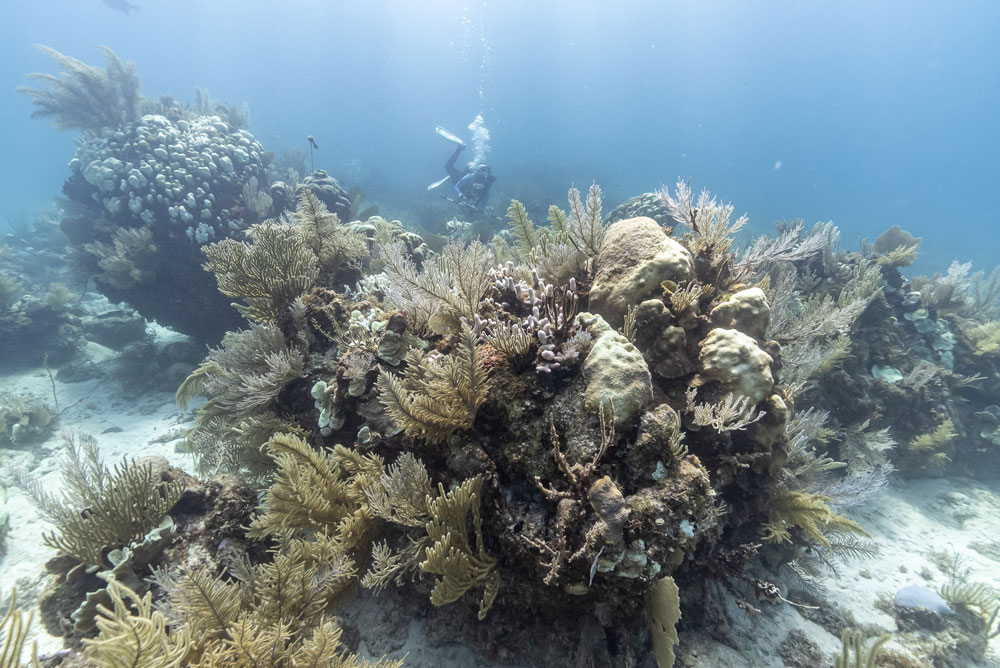As we celebrate Earth Month, a time dedicated to preserving the beauty of our planet, it’s critical to confront the brutal reality facing one of its most iconic ecosystems: coral reefs.
Today, NOAA announced that “the world is experiencing its fourth global coral bleaching event.” Since early 2023 mass bleaching “has been confirmed in at least 53 countries, territories, and local economies.” Tragically, NOAA’s report shares that they have “now received confirmation of widespread bleaching across parts of the Indian Ocean, including Tanzania, Mauritius, the Seychelles, Tromelin, Mayotte, and off the western coast of Indonesia.” The gravity of this news cannot be overstated as we’re seeing coral bleaching impact more resilient areas.
Let’s talk about what this means and what’s next.
As global temperatures continue to rise, marine heatwaves have become more frequent and severe, subjecting coral reefs to prolonged stress. The result is widespread coral bleaching, a phenomenon where corals expel the symbiotic algae living in their tissues, leading to their stark white appearance and eventual death if the stress persists.
This fourth global bleaching event is a glaring reminder of the urgent need for decisive action to combat a warming planet and help coral reefs adapt to climate change. Supporting the adaptive capacity of corals to handle changing environmental conditions is imperative if we want them to survive.

Action Against Bleaching
If there was ever a time to roll up your sleeves and get involved in this fight, the time is now. We must take immediate action to lessen further damage to coral reefs while they’re in this vulnerable state.
What are you doing to help corals rebound from bleaching and battle climate change?
Click here to support our conservation work >
The CORAL team worked together to launch the Coral Bleaching: Toolkit & Comprehensive Guide last summer. This toolkit provides essential resources and strategies to aid in conservation efforts surrounding a bleaching event. A recent update includes more remote sensing and on-site monitoring resources and introduces a section dedicated to online apps.
As we face mass coral bleaching, we hope that the update of our Toolkit and Guide provides a timely compilation of resources of what can be done before, during, and after a bleaching event, and galvanizes support for these amazing ecosystems.
Dr. Helen Fox, Conservation Science Director, CORAL
The toolkit contains actionable guidelines for reporting bleaching events, monitoring reef health, and implementing best practices for tourism sites to minimize additional stress on coral ecosystems.

By following these guidelines and taking proactive measures, we are helping reduce stressors to coral reefs to minimize the devastating impacts of bleaching on marine biodiversity. Corals can survive bleaching, but they need our assistance.
Coral bleaching demands urgent global collaboration to highlight its severity and drive better policies. This Toolkit consolidates information from diverse organizations working on coral bleaching into one accessible resource. Now, urgent steps are needed to integrate these efforts and datasets to ensure unified communication.
Dr. Andrea Rivera-Sosa
Action at CORAL
In addition to providing guidance and resources, like the coral bleaching toolkit and water quality monitoring protocol, all members of the CORAL team are committed to the collective action of our alliance and partnerships, especially supporting local efforts on the ground and in the water.

As our conservation science work has shown, corals can adapt to climate change…if we help them. Our team is working diligently toward securing clean water and healthy fish populations in coastal communities so coral reefs have a fighting chance in this warming world.
During these critical times of bleaching, we’re working closely with our partners to assess the evolving situation and provide necessary resources and funding for monitoring efforts and studies.
In our 30 years of coral conservation, we know supporting coastal communities and helping build their resilience is one of the most important factors in co-creating lasting, sustainable change for coral reefs. More specifically, this includes sharing replicable models to empower coastal communities near priority reefs to take control of their wastewater treatment and fishing practices. It also includes education around sustainable tourism and augmenting ocean literacy, particularly for youths.
Uniting for Reef Resilience
As we sit on the cusp of this fourth global bleaching event – indisputably the worst bleaching event in our planet’s history – we’re reminded of the urgent need for bold and decisive action to protect coral reefs from the consequences of coral bleaching, as well as addressing the root cause: climate change. Corals will not survive for generations to come unless rising carbon emissions are tackled with intention.
We must come together as a global community to protect and preserve these invaluable ecosystems. By leveraging the power of science, innovation, and collective action, we can alter the grim trajectory we’re on and reposition coral reefs toward a more sustainable future. As part of the CORAL community, we must continuously reinforce that action is the best remedy for despair.
Together, let us rise to the challenge and safeguard the health of our planet’s coral reefs.

For all media inquiries, please contact Kate at communications@coral.org.
